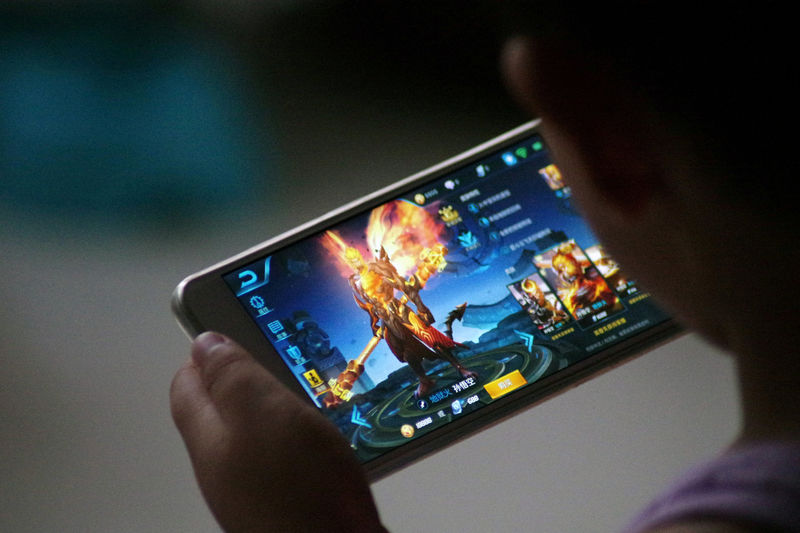BEIJING/HONG KONG (Reuters) - What's a Chinese girl got to do to get some attention these days? Grow a new skin? Chop off a few heads? For Zeng Xiaoxian, that seemed like the best shot.
Unable to compete with her boyfriend's obsession with the hugely popular and top-grossing online game "Honour of Kings", the unemployed 23-year-old from Zhejiang province figured she might as well join him.
So began Zeng's journey through Tencent Holdings' fantasy world of kings, queens and life-or-death adventures. A journey that has practically become a full-time job.
"I'm out of work at the moment, so apart from when I'm eating or sleeping I play "Honour of Kings" non-stop until the system kicks me out. A rough estimate would be at least eight hours," she said.
Honour of Kings, a fantasy multiplayer role-playing battle game, is the most popular mobile game in China with around 55 million daily active users, more than Pokemon Go at its peak, and it's the highest-grossing mobile game in China.
Its massive success, however, has drawn scrutiny from China's official media - which described it as "poison" - as well as parents and teachers amid concerns that children are becoming addicted to the game. Half of those playing it are below 24 years of age, according to Chinese mobile data firm Jiguang.
The main criticism of "Honour of Kings" is not due to its violent content, but more about concerns over addiction. China's communist party mouthpiece, the People's Daily, cited examples of teenagers stealing money to spend on game features and also a case of alleged suicide.
On Sunday, Tencent, which has a portfolio of more than 200 games, said it would limit "Honour of Kings" players below 12 years of age to one hour of play time each day, while those aged 12 to 18 would be limited to two hours a day.
The secrets to its success include the fact that games are relatively short at around 20 minutes for each and "Honour of Kings" is seen as a social tool, with scores of players telling Reuters it now played a huge part in their social lives.
"It's not just a game, but it's now becoming a crucial part of my social life ... It's crazy, like everyone is playing, and I just don't want to be left out, said Crysal Xu, a 20-year-old university student living in Toronto.
"I am totally addicted to it. I play it during lunch time, class breaks, bus-waiting periods."
Liu Jie, a 24-year-old who works for a local government was caught red-handed when officials from the local disciplinary inspection department burst into his office only to find him playing "Honour of Kings".
For Liu, who said he had to write a letter criticizing his actions, the game is also a spectator sport of sorts.
"Sometimes, you log on not to play the game, but also to check which friends of yours are online, to see how well they have been doing in the battles," Liu said. "
"Once you send them an emoji, you just start talking."
